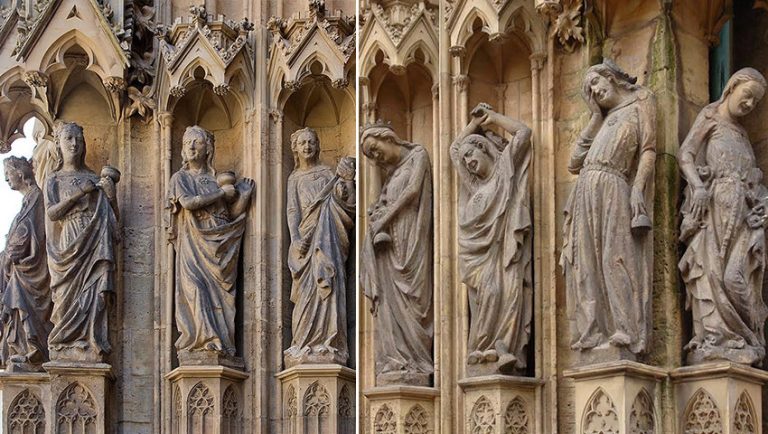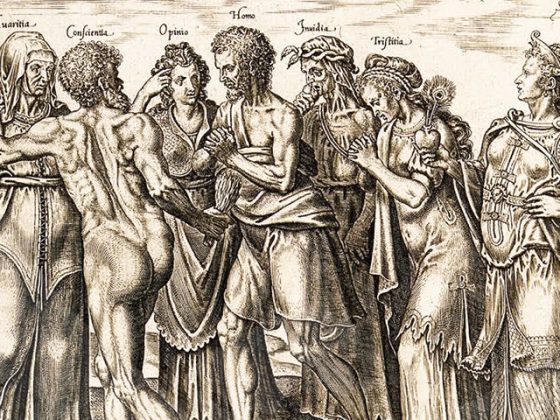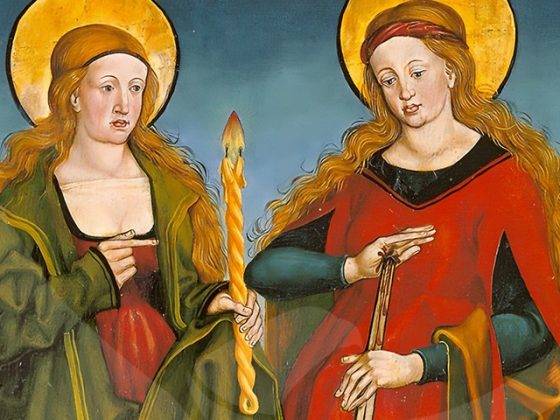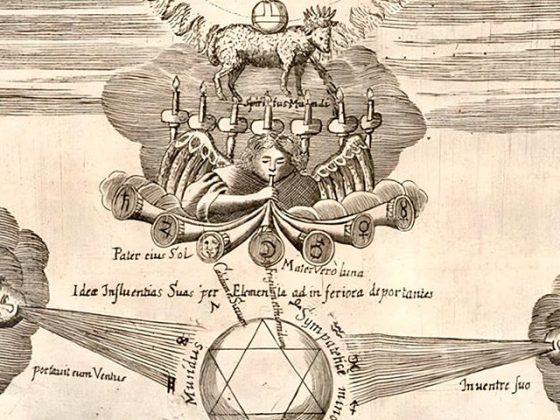Dearest friends:
I would like to send you this photograph taken of a sculptural group found in the Gothic cathedral of Saint Mary in Erfurt, Thuringia, Germany.
We have called this sculptural group…
…THE PRUDENT VIRGINS AND THE FOOLISH VIRGINS
The Erfurt Cathedral, called the Dom Sankt Marien, is a magnificent 1200-year-old building in Gothic style. Being located on a hillside, a long staircase invites the visitor to contemplation, leading him to the access to the cathedral with its curious entrance rotated to 45 degrees.
This entrance has two porticoes. One depicts the twelve apostles and the other is called the triangular portico of the jungenfreuen, that is, of the virgins.
The portico is decorated on the left side with a group of statues representing what is known as six prudent or virtuous virgins, carefully keeping the chalice always upward. On the right side are what is known as the six foolish women, with sad, desperate, crazed faces and always with the chalice facing downward.
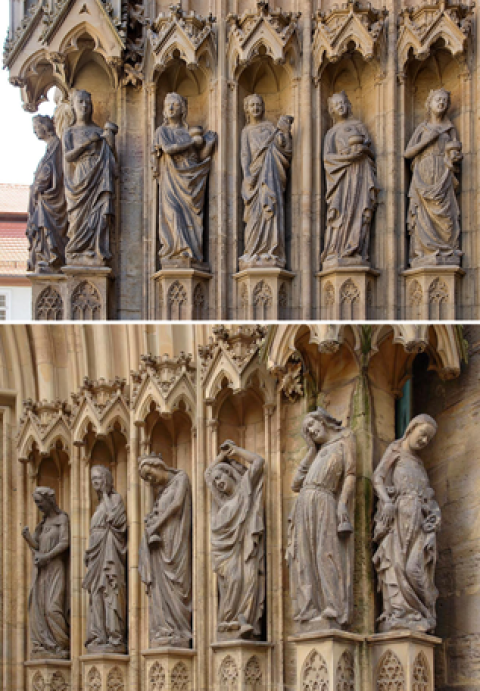
When we want to study the subject of Alchemy we find many ethical, moral, philosophical and even mystical connotations. The great Adept Fulcanelli, speaking of the transmutatory art, points out, unequivocally, the need to find the appropriate woman for the alchemical work, because without her consent it is impossible to advance in the terrain of the GREAT WORK. It is necessary that she, alchemically called the vessel of the sages or hermetic vessel, has ethical and moral qualities so that our work can give us the expected fruits. One cannot, in any way, opt for a woman who is very beautiful ─physically─ but devoid of virtues, all of which makes her unsuitable for these studies. She cannot be a feminist or mentaloid woman, who only accepts the positivism of Comte. She must be a woman with a mind open to the things of the Spirit and with true longings to find the BEING of the Hermetic Philosophy.
Let us see what the V.M. Fulcanelli tells us:
“In The Conversation between Eudoxus and Pyrophile, which serves as a commentary to this treatise, Limojon de Saint-Didier writes about this passage: “The woman who is appropriate for the stone and who must be united to it is the fountain of living water, whose source, entirely heavenly, and particularly which has its center in the Sun and the Moon, produces this clear and precious stream of the sages, which flows into the sea of philosophers that surrounds the whole world. It is not without foundation that this divine fountain is called by the author the wife of the stone.
Some have represented it in the form of a celestial nymph; others gave it the name of the chaste Diana, whose purity and virginity were not soiled by the spiritual connection uniting her to the stone. In a word, this magnetic conjunction is the magical marriage of earth with heaven, about which some philosophers have spoken; so that the second source of the physical tincture which operates such wonders takes its birth from this all mysterious marital union”.
With the above words of this great Adept –Fulcanelli– we must clearly understand that the woman suitable for the transmutatory work must be a true ISIS, and therefore she must gather the qualities of the same divine source, which is the inner Mother of each one of us.
The second tincture to which the Venerable Fulcanelli refers is the same creative energy, the gift of the Third Logos to every human being, which will one day enable him to perform the miracle of the marriage of heaven with earth, of the divine with the human… Obviously, we are not going to require the women to have the qualities of the chaste Diana, because that would be too much, but such an example is used to indicate that this work in the Forge of Vulcan is not something mechanical that is only reduced to the union of the male lingam with the female yoni, no.
On this occasion we can see on one side of the portico of this cathedral the prudent virgins and on the other side the crazy virgins.
The former carry the chalice with them facing upward, indicating that they do not admit the loss of sexual liquor –an act that is religiously designated by the Christian world as FORNICATION– under any circumstances.
The second, each of them has the chalice facing down, that is, with the intention of pouring out the creative waters. These are the worldly womenwho will most likely not be unfaithful to their husbands, they are not libertines, they like the home and children, but they would never give up the pleasure of FORNICATION, that is the great difference.
We must repeat here the words of our Patriarch, V.M. Samael Aun Weor, when he said: “We left Eden with the woman and with her we must return to it. Through the same door we left –sex– through that same door we must return to paradise”…… To conclude, I add another interesting passage by the Venerable Fulcanelli, present in his work THE DWELLINGS OF THE PHILOSOPHERS, let us see:
“One must always carefully watch the ship’s orientation, maneuver with prudence, watch out for the gusts of wind, foresee the storm, be constantly on the alert, avoid the abyss of Charybdus and the reef of Scylla, fight unceasingly, night and day, against the roughness of the sea. To direct the hermetic ship is not a small task, and master Canches, whom we suspect to have been pilot and conductor for the Argonaut Flamel, must have been very skilled in the matter”…
With this engraving and with our words we believe that we have shed light in the darkness, now it only remains for us to remark: may he who has ears hear, may he who has understanding understand, for here is wisdom……
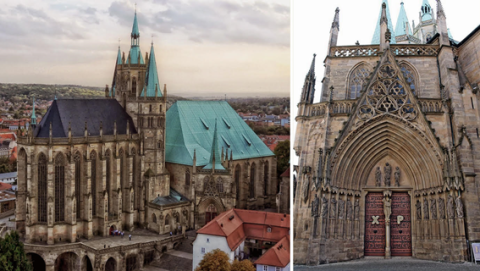
I now propose a few sentences for reflection, dear readers:
“Moderation and prudence can do and correct many things.”
Zelter
“There are few virtues without prudence.”
Cicero
“There is no more certain astrology than prudence.”
Cervantes
“It takes as much prudence to govern a house as an empire.”
Emerson
“Prudence is strictly speaking the virtue of princes.”
Aristotle
EXPRESSIS VERBIS.
─‘In one’s own words’─.
KWEN KHAN KHU


